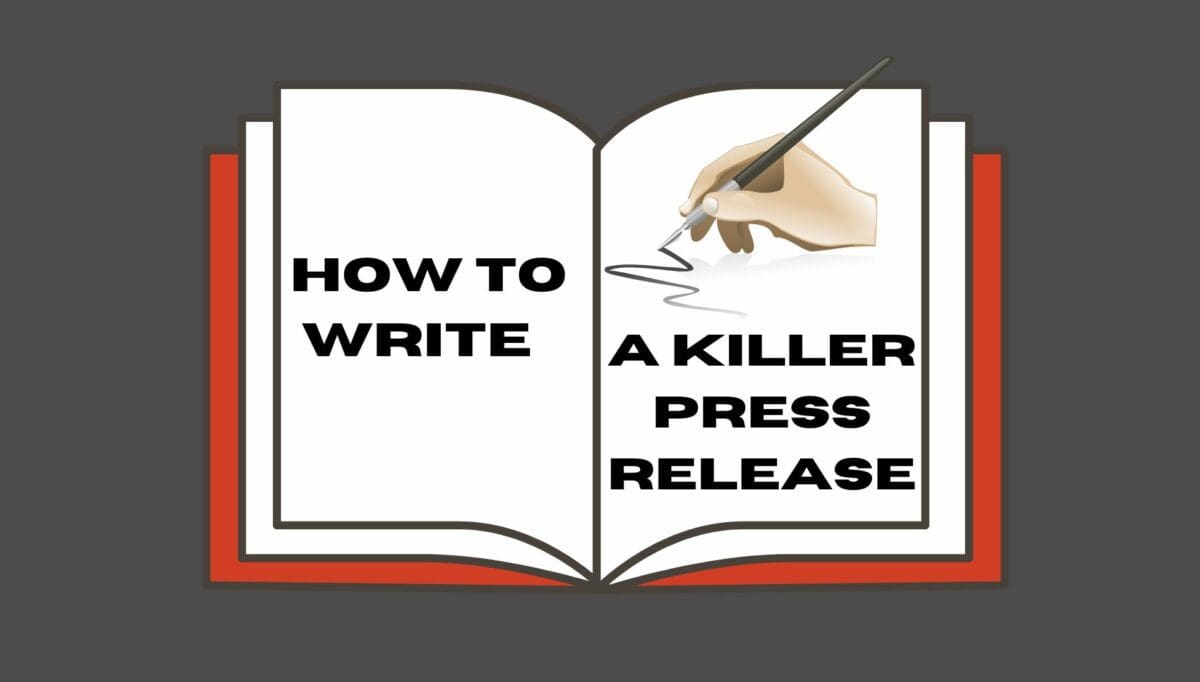If you clicked on this article, I bet you’ve asked yourself: ‘Where does film financing and funding come from?’ or ‘How are movies financed?’. I assure you, it is not easy to finance movies or slates (two or more movies). This article will help demystify financing independent films and provide tips and suggestions to help explain how to go about financing movies.
You will have to work hard and be transparent and professional to have any chance of securing trust and obtaining film funding from film finance companies. This will be hard to achieve in terms of equity, debt, or bank finance from potential stakeholders. You may even have some film investment from friends or family. Being an indie filmmaker and an indie musician is quite similar, and you can learn tips from both industries that can help.
So, let’s look more closely at your options.

The Idea And Concept
All movies start with a moment of inspiration. I call it the lightbulb moment from the producer, screenwriter, or director. This could appear whilst sitting in the office or driving in your car. You never know where this moment can occur!
Good ideas and concepts are the foundation of any movie project. Ideas for movies can be original or adapted from a novel or real-life events turned into a screenplay. Screenwriters usually have the initial idea, but it is the producer who oversees production and is in charge of raising money for the film.
Protecting Your Work
From equity players to banks, producers come up with ideas and are well-versed in financing movies. Unfortunately, ideas cannot be protected by copyright or any other intellectual property right. This is because copyright exists only in the tangible expression of ideas. For example, copyright does not protect ideas, concepts, systems, or methods. You may express your ideas in writing or drawings and claim copyright in your description, but be aware that copyright will not protect the idea itself. This is referred to as the idea/expression dichotomy.
Therefore, all independent filmmakers must take measures to protect their ideas and stories. They should only divulge their project after taking protective measures (such as having a non-disclosure or confidentiality agreement). I would also suggest subscribing to producer errors and omissions insurance and multimedia risk insurance. This covers legal liability and provides a defense for the company against lawsuits around unauthorized uses, plagiarism, formats, ideas, characters, plots, and unfair competition.
Another area to consider when thinking about film financing is to protect your movie concept is sending the script to yourself (the copyright holder) in the post with all of the screenwriters, directors, and producers’ notes. Send it using First Class recorded delivery, and only open under the instruction of a legal advisor in the event of a lawsuit. It is best to have the “belt and braces “approach!

Development Of How To Finance Movies
The next stage of movie development is to turn an idea into a script ready for pre-production, and finally full production when the film’s finance is ready.
Development funding is the funding that you need to invest into your movie idea until it is in the position for presenting to your potential investors. Development movie finance is used to pay the writer. While the script is being written, this will pay the producer’s travel expenses to the major film markets to plan and execute the contracts for pre-sales film financing.
Script Development
Once the film development and funding are in place, negotiations can begin between the screenwriter and the producer (or production company).
The screenwriter will hire an agent (or may already have one) who will represent them. Agents are critical in ensuring that the writer’s interests are represented in the process, ensuring that the screenwriter is paid by what the writer’s IP (intellectual property) rights could be valued in the future.
The producer does have an alternative option for the film project to move forward, as they can buy the movie rights to the material from which the script was adapted outright, or buy a portion. The first transaction is an assignment of copyright. Buying a portion of the film rights means that the producer owns the right to develop the film, but only for a certain amount of time. This is around 6-12 months or longer and is an exclusive license of the copyright.
In either case, the producer is the only person allowed to develop the movie idea into a full screenplay. He will then pay the screenwriter a fee, with agreed future installments. The producer may also agree to pay the screenwriter a higher amount for film rights once the shooting begins. The writer then begins drafting the screenplay synopsis. Unlike a ‘treatment’ (a summary of everything that happens in a screenplay), a synopsis includes the most important parts of the story.
Finance Movies: Packaging The Film Project

Once the script is complete, the producer will send it across to the directors to gauge their interest. The director/producer will then decide how to film the movie, and who they will employ to support them.
A common way to make the movie project more commercial is to attach well-known actors to the script. This can come with a big fee, depending on the actor and their representatives. Reasons for this can be attributed to many factors, for example, the fee, travel, and scheduling.
Potential investors would want to know how the producer plans to raise the money, and how they plan to pay back the investor over the next 3-5 years. This will come down to a solid business plan, keeping the process as seamless as possible. Agents and artist managers are key players within the movie business, as they structure the deals. Having strong relationships in this space is as important as having a strong story on which to base your project.
Finance Movies
Filmmaking is an expensive business, and the producer must secure enough finance to make the film at the highest possible standards to stand a chance in the film marketplace.
To obtain financing from film financing companies, the producer must travel and meet with all potential investors, partners, banks, and/or sponsors. The producer’s attorney will draw up contracts to agree on the financing deals between the producer, equity investors, film financiers, and banks. As a detailed process, you will need to be guided by your attorney.
Pre-Production
Once the finances for film financing are in place, the film production company can hire cast and crew with detailed shoot preparation.
Make a clear distinction between above-the-line personnel (director, screenwriter, and producer) who began their involvement during the film’s development, and the below-the-line ‘technical’ crew, who are involved only with the full production stage.
The Film Shoot And Production

Filmmakers must take a careful approach to greenlight a movie project. Make sure to get unanimous consent from producers, directors, sales agents, and the board of directors of the film’s incorporated company before proceeding.
A large film production can involve hundreds of people and crew, and it can be a struggle to keep up with the shooting schedule and the movie’s financial budget. Strict and clear planning and agreed timelines for the film’s completion are necessary. If film production falls behind schedule, the financiers and the completion bond insurers may step in and take over the project to mitigate the possible losses and keep the film on time and within budget. This will only happen in extreme circumstances.
Post-Production
Allow me to explain the post-production process in more detail. It usually starts during the movie shoot, or as soon as the first ‘rush’ (raw footage and sound) is available. As the footage comes in, the editor will turn it into scenes and assemble it into a narrative sequence for the movie.
The editor will then read the script and storyboards and look at the rushes. With this information, they will cut the film according to what makes the story better for the big screen.
Movie Sales
While the film is still in post-production, the producer will try to sell it to international distributors (if they have not sold the rights at the financing stage).
Filmmakers must have a pre-sales distribution and a clear market strategy in place that benefits the back-end commercials of the movie. While targeting the major film markets like Cannes, Berlin, London, Toronto, Tribeca, and Sundance.

Movie Marketing
As the finishing touches are being made, the distributors will plan their marketing and PR strategy to sell the movie to the public and movie theatres.
Knowing your audience is key, and the marketing and PR team will run test screenings to see how the film is going to be received. Publishing Press kits, posters, flyers, and newspaper and magazine ads will build awareness and visibility on a commercial platform.
Expedition
Cinema expedition (also known as theatrical release) is still the primary channel for films to reach their audiences. Box office success equals financial success for the movie project, so it is very important. Film distributors usually release a film with a launch party, a premiere, press releases, interviews, press preview screenings, and so on.
The Studio Model
The strategy here is to put together 3-5 films of a similar genre and approach investors with a slate of similar films. If just one film is successful, it will pay off.
While this strategy consisting of the mitigation of your risks sounds great, a reality check is necessary. Do you think that you can get more than one project together? Look very carefully at this area, and seek advice from your professional advisors.
Government Film Funding

Many countries have attractive tax and investment incentives for movie makers. For example, Europe’s MEDIA program has 20+ programs for media and filmmakers. You will need to apply for this funding.
Another example is the UK government, which pumps millions of pounds into British films every year with National Lottery funds. Following the demise of the UK Film Council, UK public money is now distributed by the British Film Institute (BFI).
How To Finance Movies: Equity
This is a cash investment for your movie project from a single investor or a group of investors. Equity film investments require investors to own a stake or percentage of the film (i.e. the operating structure, or special purpose vehicle (SPV) for the movie). You can expect an investment return of around 20% before profits are seen, but negotiating higher equity is not out of the question depending on the deal you have agreed to.

Pre Sales And Co-Productions
Pre-sales agreements are pre-arranged contracts made with film distributors before the movie is produced. They are based on the strength and quality of the project once it has been reviewed by the distributors. Factors include the script, the attached talent, the team involved, and the marketing strategy. Once you enter the pre-sales agreements, there are a couple of ways to proceed
- You can take out a bank loan using the pre-sales as collateral
- You can receive a direct payment at a discount from the distributors themselves.
This strategy requires the filmmaker to either repay the loan based on the pre-sales or receive a direct payment from the distributors before profiting. The filmmaker will likely have to personally guarantee the loan or advance payment if the movie cannot be completed. Due to the complexity of these pre-sales deals, it is wise to consult with your professional advisors before entering into this type of agreement.
Loans/Gap Or Bridge Financing
If the producer has raised equity for the movie, they may be able to procure a loan from a bank or private lender on the unsold territories of the movie. There are possible additional elements of collateral, such as intellectual property or corporate guarantees.
Gap financing is only available when other elements have been agreed, upon and there is security for the investor to bridge the movie funding against.

How To Finance Movies: Film Tax Credits
Interestingly, tax credits are useful for filling in the gaps between the money raised and the budget of the film.
Individual states in the US and other countries allow producers to subsidize the money spent on production through tax benefits/incentives. Tax credits are based on an application process, and are often very difficult to obtain for a movie.
UK Film Tax Relief is:
- UK Film Tax Relief (FTR) is available for all British qualifying films of any budget level. The film production company can claim a payable cash rebate of up to 25% of UK qualifying expenditure.
- Tax Relief is capped at 80% of core expenditure. So, even if you spend 100% of the qualifying expenditure in the UK, tax relief is payable on up to 80%.
- There is no budget limit.
The US State Tax Relief Options:
- Movie Production Incentives: This refers to any number of film tax credit programs, perks, and spending incentives that the state offers.
- Film Tax Credits: This covers a portion of the income tax that a production company would owe to that state.
- Cash Rebates: This is a percentage of a production company’s spending, distributed to production companies after filming.
- Grants: These are given to production companies before the production process starts.
- Sales Tax Exemptions: This area covers a portion of in-state spending by a production company by starting with minimum budget spending.
- Lodging Exemptions: This covers a portion of in-state hotel spending taxes. It usually applies to all members of the film shoot residing over 30 days.
How To Finance Movies: Crowdfunding
Crowdfunding companies such as Kickstarter, IndieGoGo, Ulule, Junction, and Rockethub are serious contenders in the film space to help you raise money. These are a contributions-based model for capital to be raised without selling any equity.
The strategy is that you get rewards (like DVDs, t-shirts, and dinner with the film director or movie star). You should also offer these rewards to friends and family and encourage them to contribute. The idea is to build a community that believes in your story. Standing out in the crowd is important in this competitive space. Therefore, you will need a really solid and structured business plan to successfully approach crowdfunding.
Deferrals
Most independent filmmakers will defer their producer fees to lessen the amount of money they need to raise. The problem with this is that they are working for free and relying on the film’s success for payment. This method is a gamble, especially since all deferred fees will only be paid after the loans and investors have recouped the initial investment.
Whether a first-time or experienced filmmaker/producer, you will probably have to use a combination of these financing options. The key is to present a completed, professional package with relevant, legally airtight attachments. It is also important to have a solid budget, and an experienced person onboard to lend gravitas, awareness, and visibility to the movie.
How To Finance Movies: A Summary
I hope the above information helps to provide you with some understanding of how movies are financed. You can now begin with a clear idea of how to start your project.
In today’s world, it is very difficult to raise finance in general. Having clear information on where to start and who to talk to is vital. I wish you great success in your movie projects and future endeavors. Stay motivated, research your options thoroughly, and remember that planning and organization are key. If you are interested in the crossover between music and film, check out our article on music supervisors.




